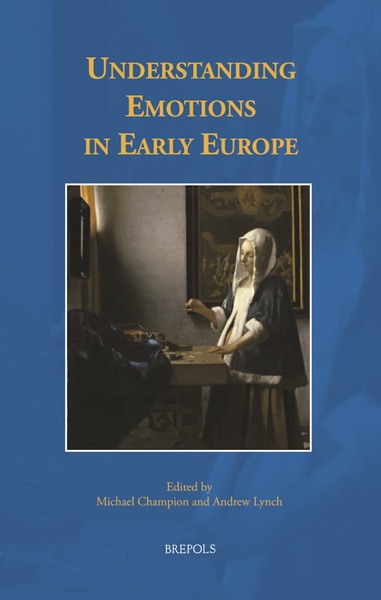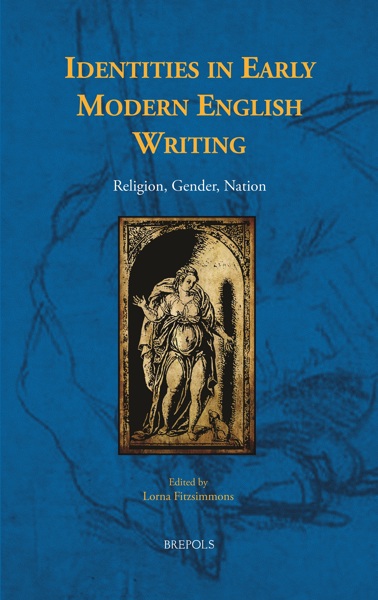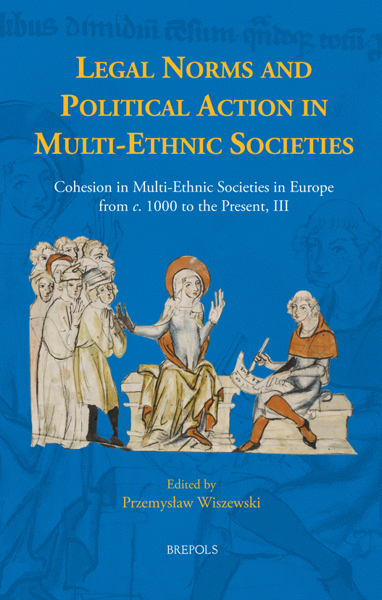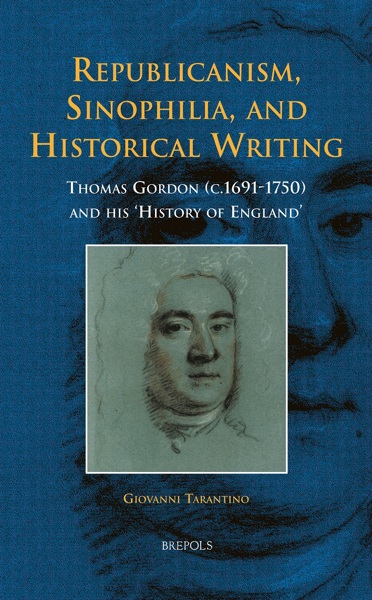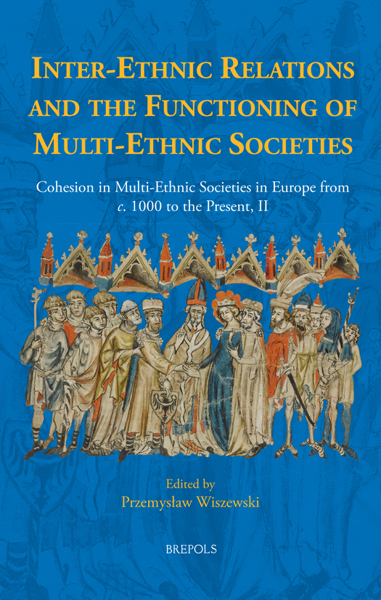
Understanding Emotions in Early Europe
Michael Champion, Andrew Lynch (eds)
- Pages: xxxiv + 357 p.
- Size:156 x 234 mm
- Language(s):English
- Publication Year:2015
- € 110,00 EXCL. VAT RETAIL PRICE
- ISBN: 978-2-503-55264-4
- Hardback
- Available
- € 110,00 EXCL. VAT RETAIL PRICE
- ISBN: 978-2-503-55288-0
- E-book
- Available
Drawing on the latest scholarship from international researchers, this dedicated collection investigates how medieval and early modern Europeans understood and articulated emotions.
"Wer sich für die Geschichte von Gefühlen im vormodernen Europa interessiert, sollte "Understanding Emotions" früher oder später zur Hand nehmen." (Andreas Bähr, in: Francia-Recensio 2016/4
Frühe Neuzeit - Revolution - Empire [1500-1815]; http://www.perspectivia.net/publikationen/francia/francia-recensio/2016-4/fn/champion_baehr)
“(…) a valuable addition to the growing field of the cultural history of emotions, not only because of its focus on the textual and material embeddedness of historical emotions, but also because of the editors’ plea for (re)considering the role emotions play in cognition (…) This collection is therefore not only of interest to emotion historians, but also to emotion researchers from other branches of science interested in a cultural-historical perspective on their subject.” (Kristine Steenbergh, in Renaissance Quarterly, 70/1, 2017, p. 295)
“Insgesamt können und wollen die versammelten, methodisch vielfältigen, durch einzelne Literaturlisten und ein zuverlässiges Register zu erschliessenden Bieträge zum grossen Teil australischer Forscherinnen und Forscher Interpretationszugänge aufzeigen, Begrifflichkeiten zur Verfügung stellen und ein Forschungsfeld methodisch innovativ aufschliessen (…)”. (Christof Paulus, in Archiv für Kulturgeschichte, 98/2, 2016, Seite 483)
“(…) a remarkable collection of essays, which has among its overall merits that of stressing the vantage points offered by history of emotions as a discipline, while at the same time pointing out its internal contradictions (…) In sum, [it] provides its readers with a rich overview of the theoretical debates which underlie the history of the emotions both at a metholodogical and a thematic level. It is also a collection that easily leads one to think beyond the book’s immediate subject matter, at a time when emotions occupy the public sphere to the extent of influencing the interpretation, and even the creation, of facts.” (Eva Del Soldato, in Emotions: History, Culture, Society, 1/1, 2017, p. 204)
This book investigates how medieval and early modern Europeans constructed, understood, and articulated emotions. The essays trace concurrent lines of influence that shaped post-Classical understandings of emotions through overlapping philosophical, rhetorical, and theological discourses. They show the effects of developments in genre and literary, aesthetic, and cognitive theories on depictions of psychological and embodied emotion in literature. They map the deeply embedded emotive content inherent in rituals, formal documents, daily conversation, communal practice, and cultural memory. The contributors focus on the mediation and interpretation of pre-modern emotional experience in cultural structures and institutions — customs, laws, courts, religious foundations — as well as in philosophical, literary, and aesthetic traditions.
This volume thus represents a conspectus of contemporary interpretative strategies, displaying close connections between disciplinary and interdisciplinary critical practices drawn from historical studies, literature, anthropology and archaeology, philosophy and theology, cognitive science, psychology, religious studies, and gender studies. The essays stretch from classical and indigenous cultures to the contemporary West, embracing numerous national and linguistic groups. They illuminate the complex potential of medieval and early modern emotions in situ, analysing their involvement in subjects as diverse as philosophical theories, imaginative and scholarly writing, concepts of individual and communal identity, social and political practices, and the manifold business of everyday life.
See also the companion title Performing Emotions in Early Europe, edited by Philippa Maddern, Joanne McEwan, and Anne M. Scott (http://www.brepols.net/Pages/ShowProduct.aspx?prod_id=IS-9782503572376-1)
Understanding Emotions: ‘the things they left behind’ — MICHAEL CHAMPION and ANDREW LYNCH
I. Intellectual Traditions
From Regret to Remorse: The Origins of a Moral Emotion — DAVID KONSTAN
Representing Emotions in Three Byzantine Orations of Michael Psellos — MICHAEL CHAMPION
‘Tears such as angels weep’: The Evolution of Sadness in Demons — JUANITA FEROS RUYS
Emotional Strategies in the Early English Lyric — DANIEL ANLEZARK
II. Literature
‘What Passion cannot Musick raise and quell!’ The Pindaric Ode and the Musical Sublime in the History of Emotions — MIRANDA STANYON
Embodied Emotion, Conceptual Metaphor and the Aesthetics of Reading Old English Poetry — ANTONINA HARBUS
Guinevere as ‘Social Person’: Emotion and Community in Chrétien de Troyes — ANDREW LYNCH
Positive Emotion in the Thirteenth Century: The Emotional World of Goswin of Bossut — JENNIFER CARPENTER
Decoding the Emotions in Aphra Behn’s and Anna Maria Falconbridge’s Travel Narratives — MARGARETE RUBIK
III. Social History and Material Culture
Fear, Gender and Violence in Early Modern Ireland — DIANNE HALL
Fear of Crime in Eighteenth-Century London — ROBERT SHOEMAKER
Reality and Ritual in the Medieval King’s Emotions of Ira and Clementia — PENELOPE NASH
Affective Bequests: Creating Emotion in York Wills, 1400–1600 — LISA LIDDY
'Memento mori': Love/Fear of and for the Dead amongst Early Homo sapiens: Archaeological Approaches — SANDRA BOWDLER and JANE BALME
Notes on Contributors
Index
